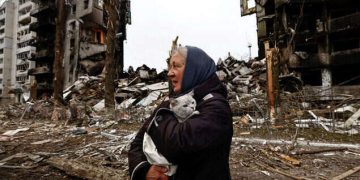On International Human Rights Day on December 10, Kazakhstan has reaffirmed its dedication to promoting and protecting human rights through comprehensive reforms and international cooperation. Reflecting on the 75th anniversary of the Universal Declaration of Human Rights in 2023, Kazakhstan continues to implement transformative measures under President Kassym-Jomart Tokayev’s III Presidential Decree on Human Rights and Rule of Law.
Advancing Legal Protections and International Commitments
The III Presidential Decree, accompanied by a far-reaching Action Plan, underscores Kazakhstan’s commitment to aligning its national legal framework with international human rights obligations. The plan highlights areas such as strengthening protections for vulnerable groups, combating domestic violence, enhancing labour rights, and ensuring freedom of association.
Kazakhstan actively collaborates with international organisations, including the United Nations and the Organisation for Security and Co-operation in Europe (OSCE), to bolster its human rights mechanisms. These partnerships ensure that national reforms adhere to global best practices.
Key Human Rights Reforms Implemented
Among the significant achievements resulting from the Action Plan are:
- Abolition of the Death Penalty: Kazakhstan affirmed its commitment to the Second Optional Protocol to the International Covenant on Civil and Political Rights, officially abolishing the death penalty.
- Strengthened Human Rights Institutions: The establishment of the Constitutional Court and the Office of the Commissioner for Human Rights enhances citizens’ access to justice and ensures compliance with the Paris Principles.
- Social Protection Enhancements: The introduction of the Social Code and the appointment of a Commissioner for the Rights of Socially Vulnerable Groups offer robust protections for marginalized populations.
- Child and Disability Rights Protections: Ratification of UN Optional Protocols on the Rights of Children and Persons with Disabilities strengthened legal safeguards for these vulnerable groups.
- Criminalisation of Domestic Violence and Harassment: New legal frameworks criminalize harassment and domestic violence, establish psychological rehabilitation programs, and create a specialized Department for Combating Domestic Violence under the Ministry of Internal Affairs.
- Gender Equality Initiatives: Two national action plans promote equal rights for men and women and advance the UN Security Council Resolution 1325 on “Peace, Women, and Security.”
Addressing Emerging Human Rights Challenges
Kazakhstan also prioritises combatting human trafficking through stricter legal measures and improved enforcement against abduction, forced prostitution, and child trafficking. In addition, the government has enhanced workplace safety standards by implementing International Labour Organisation (ILO) guidelines.
Commitment to Social Integration and Refugee Protections
To support social reintegration, tax incentives encourage businesses to employ individuals with past convictions. Moreover, a tripartite mechanism involving the Ministry of Labor and Social Protection, the National Security Committee, and the Ministry of Internal Affairs provides legal protections for refugees, ensuring compliance with UNHCR recommendations.
Marking International Human Rights Day, Kazakhstan has reaffirmed its dedication to building a just, democratic society rooted in the rule of law. Through sustained reforms, enhanced international partnerships, and a steadfast focus on human rights protections, Kazakhstan remains committed to fostering an inclusive and equitable society for all.





























